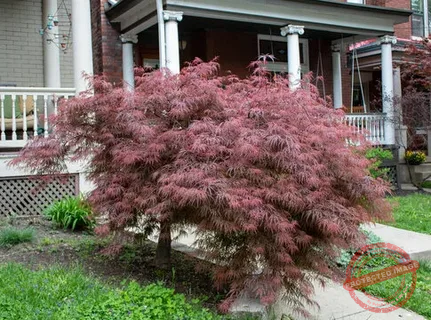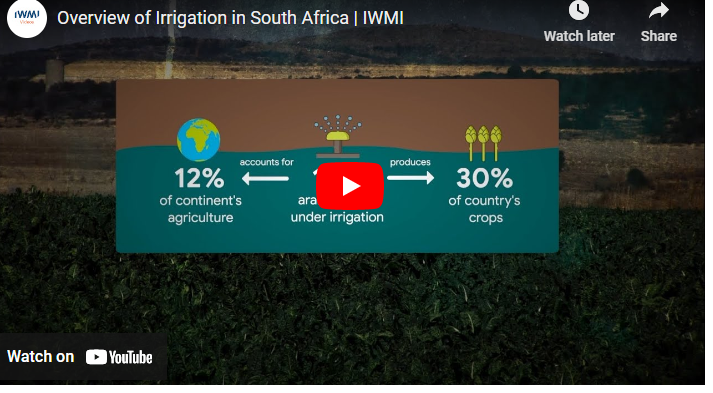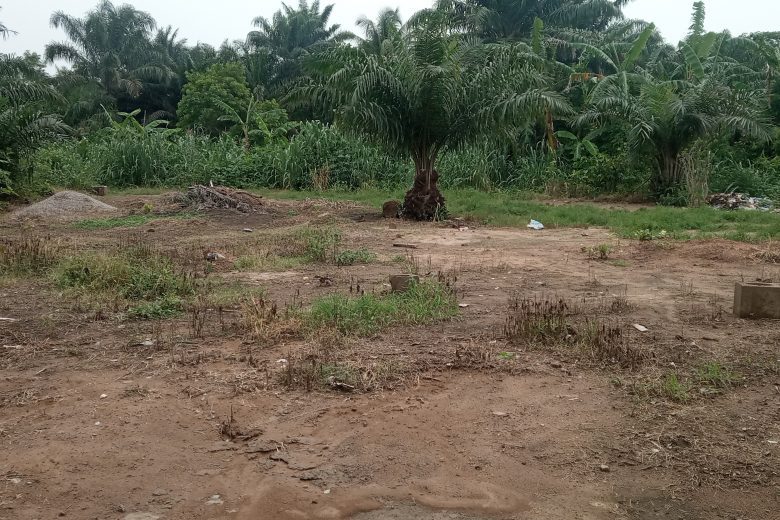Mulch is an essential component of successful plant cultivation in South Africa. Mulch is a layer of organic material, such as compost, chopped leaves, bark, or straw, that is added to the soil to protect and improve the quality of the soil.
Mulching has long been used in South Africa for improving soil fertility and promoting healthy plant growth. It is a simple and cost-effective way to ensure that the soil is well-aerated, has good drainage, and maintains the necessary levels of moisture.
Mulching is especially beneficial for cultivating drought-tolerant and heat-resistant plants. This is because the country’s climate can be quite extreme, and mulch helps to keep the soil temperature regulated.
In this article, we will discuss the benefits, disadvantages, and how to use mulch for plant cultivation in South Africa, among other important information you will need to know.
Using Mulch for Plant Cultivation in South Africa [Farmers Guide]
The use of mulch for plant cultivation in South Africa is beneficial in a number of ways. Firstly, it helps to reduce water evaporation from the soil by providing a barrier between the soil and the sun.
This can be particularly beneficial in drier climates where water is scarce. Mulch helps to keep the soil moist and cool, thus allowing for more efficient water use.
Mulch Materials
When it comes to mulch materials, there is a wide variety of options available. Organic mulches, such as wood chips, straw, and compost, are the most common and are the most beneficial for the soil.
Inorganic mulches, such as gravel, stones, and plastic, are also available. While these materials are not as beneficial for the soil, they can be effective at reducing weed growth and water loss.
Mulch Preparation
Before you apply mulch across your farm, make sure you have thoroughly prepared the soil. The soil should be loosened and any weeds should be removed. If the soil is too dry, water it until it is damp. Once the soil is prepared, mulch can be applied.
How to Use Mulch
When using mulch for plant cultivation in South Africa, it is important to apply the mulch correctly. The mulch should be applied in a layer that is 4-6 inches thick and should cover the entire area where the plants are growing. This will help to prevent pests and diseases from attacking the roots. A layer of mulch that’s too thick can also cause problems, as it can prevent air and water from reaching the roots.
It is important to leave a gap around the base of the plants to allow air and water to reach the roots. In addition, it is important to check the mulch regularly and replenish it when necessary.
Benefits of Using Mulch
Using mulch for plant cultivation in South Africa has numerous benefits. Mulch helps to conserve moisture in the soil by reducing water evaporation and trapping humidity around the plant roots.
It also helps to control soil temperature, reducing the extremes of heat and cold. In addition, mulch can help to reduce the growth of weeds by blocking out light and reducing the number of weed seeds that can germinate.
Mulch also helps to reduce soil erosion, as it prevents rain and wind from washing away the soil. Also, mulch can provide essential nutrients to the soil, as it breaks down over time and releases important minerals.
Mulching also helps to break down soil clumps, improves its texture, and provides beneficial nutrients. The right type of mulch can also help to reduce the spread of certain diseases, such as root rot.
Disadvantages of Using Mulch
While there are numerous benefits to using mulch for plant cultivation in South Africa, there are also some disadvantages.
Mulch can be expensive, especially if you are buying it in bulk. Additionally, mulch can cause nutrient deficiencies if it is not properly managed.
If too much mulch is applied, it can prevent oxygen, water, and nutrients from reaching the soil. In addition, mulch can be a breeding ground for pests, such as slugs, snails, and mice.
Mulch For Sale South Africa
Mulch helps to protect plants from extreme temperatures, keep soil moist and reduce weed growth. It can also improve the look of your garden by adding color and texture. Some mulch products are also designed to improve soil quality, providing plants with essential nutrients.
When shopping for mulch, it’s important to consider the type of material you need. Compost and peat moss are good for flower beds, while pine needles and bark are better for pathways and walkways. It’s also important to consider the size and texture of the mulch. If you’re looking for a fine texture, then shredded bark or wood chips might be the best choice.
When it comes to price, you’ll find that mulch for sale in South Africa is generally quite affordable. You can usually purchase mulch in bulk, which will help you save money in the long run. It’s also a good idea to shop around and compare prices from different suppliers.
Best Mulch For Vegetable Garden
Organic mulch is the best option for vegetable gardens because it helps to retain moisture in the soil, reduces weeds, and provides nutrients to the soil. It also protects the soil from erosion and helps to keep the soil temperature consistent. Organic mulch options include bark, straw, grass clippings, leaves, and compost. Be sure to avoid any mulch made with treated wood or herbicides as these can be harmful to vegetables.
Where To Buy Mulch Near Me
If you are looking to buy mulch near you, there are several options available. You can purchase mulch at home improvement stores, gardening centers, hardware stores, landscape supply stores, online retailers, and nurseries.
Many of these stores offer a variety of mulch types, such as pine bark, cedar, hardwood, and rubber. Prices vary depending on the type of mulch and the size of the bag or pallet.
You can also buy mulch in bulk from some companies, which can save you money. Additionally, some municipalities may offer free mulch for residents, so be sure to check with your local government for details.
What Is Mulch Used For
Mulch is any type of material, such as leaves, straw, wood chips, grass clippings, or compost, that is spread or layered on top of the soil to help maintain moisture, reduce weeds, and improve the health and appearance of the soil.
It is also used to insulate plants from cold or hot temperatures and to prevent erosion. Mulch can also be used to help suppress disease in plants by preventing spores from splashing up onto the foliage.
Mulch Alternatives
Mulch is a great way to keep weeds away, retain moisture, and keep your gardening beds looking neat and tidy. But if you’re looking for some alternatives to mulch, there are several great options.
One option is to use natural materials such as grass clippings, leaves, straws, pine needles, and shredded bark. These materials are not expensive and easy to find. They also can help prevent weed growth and retain moisture.
Another option is to use landscape fabric. This fabric is made from polypropylene and is designed to keep weeds out of garden beds. It also helps keep moisture in and can be used in combination with mulch.
If you’re looking for something more decorative, consider using stones or pebbles to cover the surface of your garden beds. This will help keep weeds away and can add a beautiful accent to your garden.
If you’re looking for something more low-maintenance, consider using plastic sheeting. This sheeting can be used to cover garden beds and will keep weeds away while also retaining moisture.
No matter which mulch alternative you decide to use, it’s important to make sure you’re taking steps to keep your garden beds neat and tidy. The right mulch alternative can help you achieve this goal.
Using Mulch In Potted Plants
Mulch is an often overlooked but highly beneficial addition to potted plants. It is a material that is spread over the top of the soil in a pot to help control weeds, moderate soil temperature and moisture, and improve the overall look of the pot. Mulch can also help keep the soil in place and reduce the need for frequent watering.
Organic mulches, such as bark, shredded leaves, grass clippings, and compost, are the best choice for potted plants. These materials decompose over time, providing additional nutrients to the soil in the pot. Inorganic mulches, such as gravel, pebbles, and stones, may look attractive but offer no nutrition to the soil and should be avoided.
Using Mulch For Landscaping
Mulch is a great way to enhance the appearance of your landscape. It can help to reduce weeds, conserve moisture, and provide a decorative element. Mulch also adds nutrients to the soil, helping to improve its fertility.
The types of mulch available include wood chips, shredded bark, straw, and compost. Each type has its own benefits and drawbacks, so it’s important to consider the needs of your landscape when selecting a type of mulch. Installing mulch correctly can help ensure that it is effective and maximizes its benefits.
Using Mulch As Soil
Mulch can be used as soil to improve the soil structure and increase the overall fertility of the soil. Mulch can help retain moisture, improve drainage, and add organic matter to the soil. It can also improve the soil’s ability to hold nutrients and help control soil erosion. Mulch can be used to cover the soil surface to reduce evaporation, reduce weed growth, and keep the soil cool.
Grow Plants In Mulch
Mulch is an organic material that is used to cover and protect the bare soil around plants. It helps to retain moisture and control weeds, while also providing essential nutrients for healthy plant growth.
It can be made from a variety of organic materials such as straw, grass clippings, compost, leaves, and wood chips. Mulch should be applied in a thick layer around the base of the plants and can be replenished as needed.
This will help to keep the soil moist, regulate the temperature of the soil, and suppress weed growth.
Mulching In Forestry
Mulching in forestry refers to the application of a protective layer of organic material on the soil surface to reduce erosion, suppress weed growth, improve soil fertility, and conserve soil moisture.
Mulching can be done manually or mechanically with machines such as a mulching mower. It is most often used in forested areas to reduce soil disturbance and to promote the growth of beneficial vegetation.
Mulching can also be used on agricultural crops to reduce water loss from irrigation and to regulate soil temperature.
Using Mulch In Flower Beds
Mulch is a great way to enhance the appearance of flower beds, as well as providing other benefits. Mulch helps to conserve moisture, reduce weeds, and maintain a consistent temperature for the soil and plants.
It also helps to prevent erosion and can provide a natural, decorative element to flower beds. When applying mulch, it is important to ensure it is spread evenly and covers the entire bed, while taking care to avoid piling it too deep.
Conclusion
using mulch for plant cultivation in South Africa can be beneficial in many ways. It can help to conserve moisture, control temperature, reduce erosion, and provide nutrients. However, it is important to use mulch correctly and to monitor it regularly. By following the advice in this article, you can ensure that mulch is used effectively and safely.



